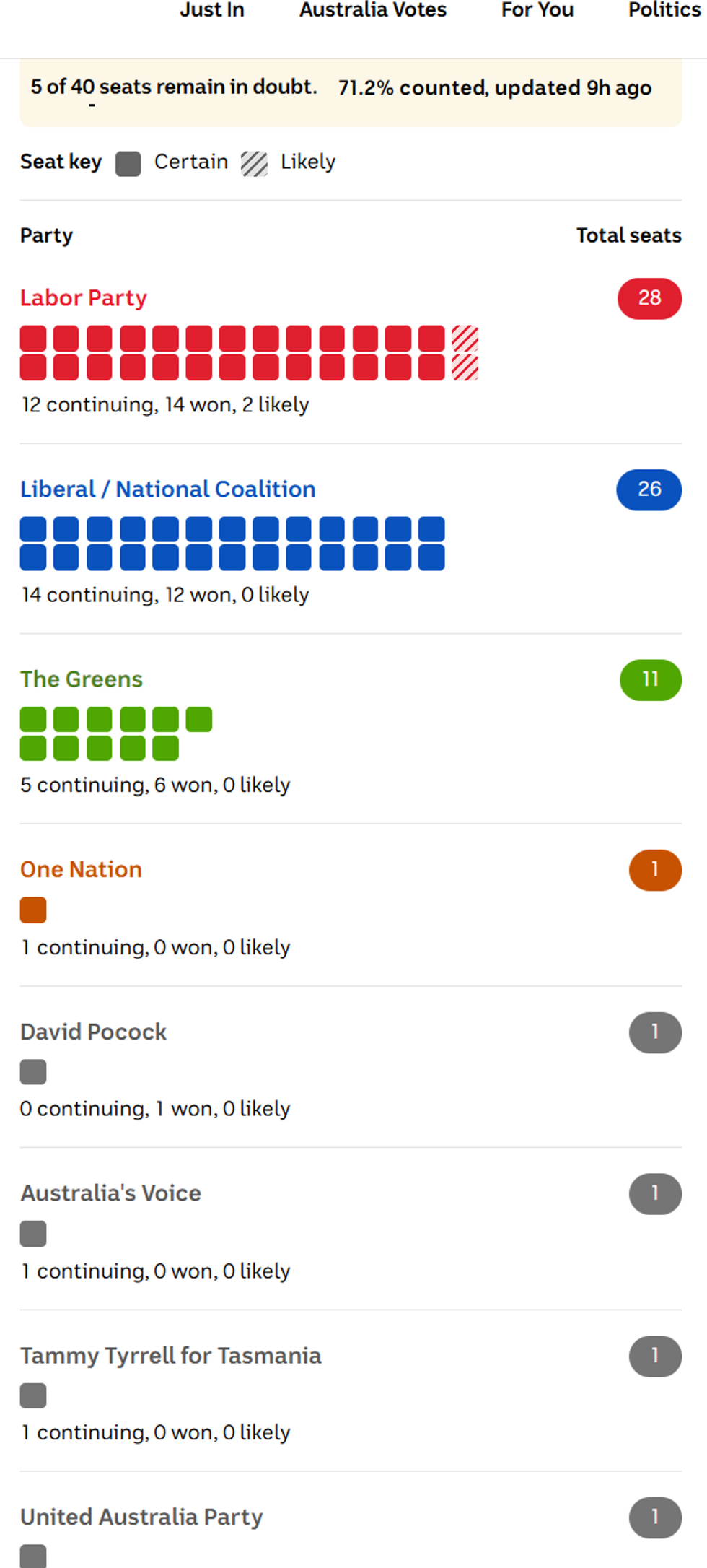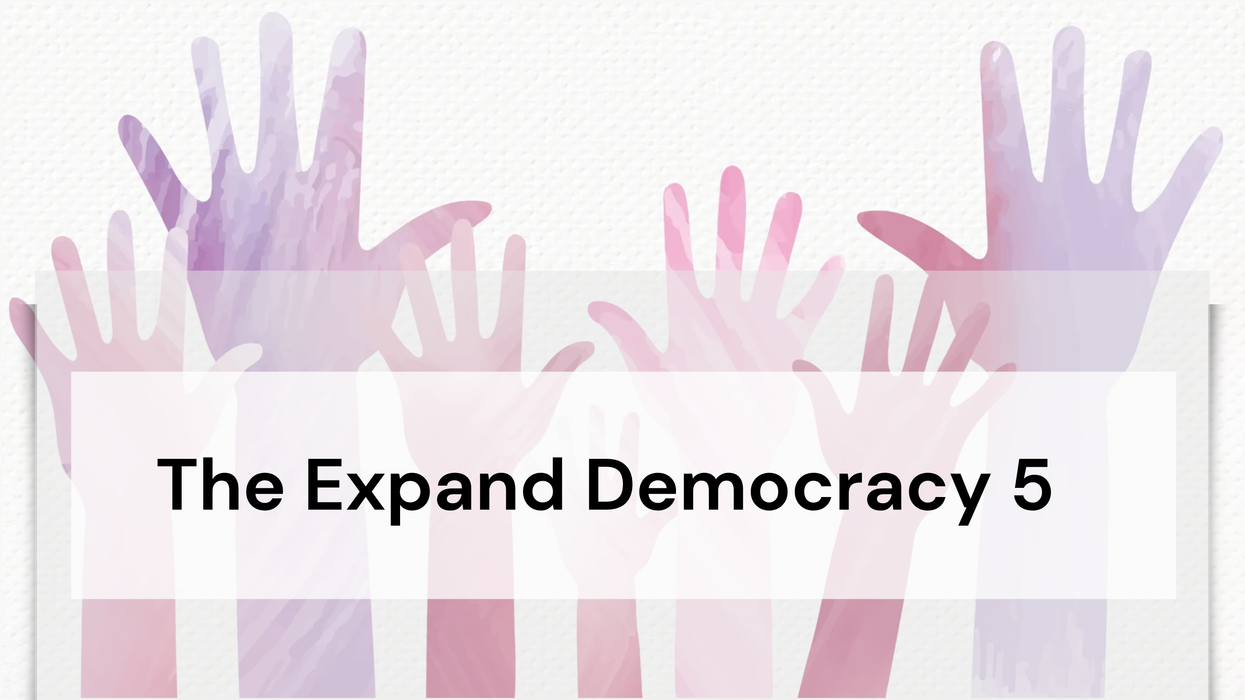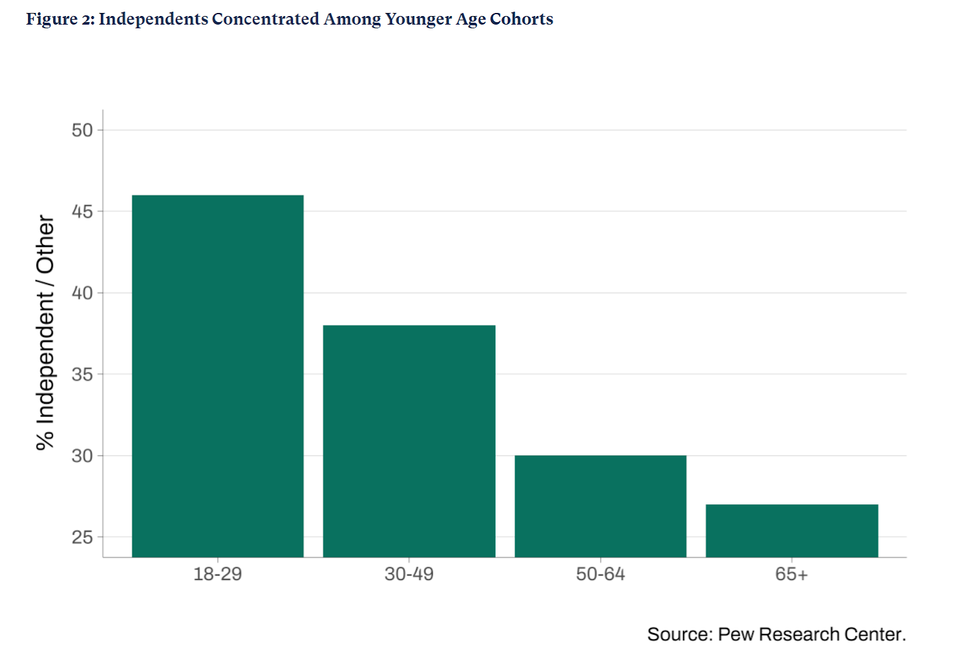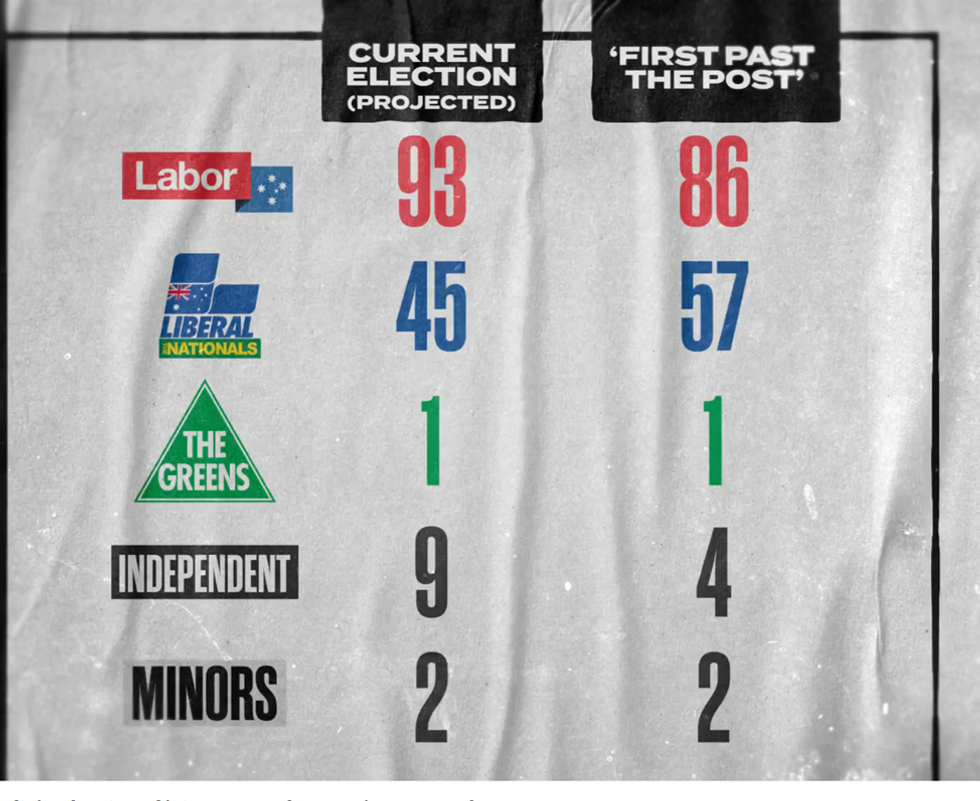Welcome to the latest edition of The Expand Democracy 5 from Rob Richie and Eveline Dowling. This week they delve into: (1) Deep Dive - Inviting 21st century political association; (2) Australian elections show how fairer voting matter; (3) International election assistance on the chopping block; (4) Checks and balances and the US presidency; and (5) The week’s timely links.
In keeping with The Fulcrum’s mission to share ideas that help to repair our democracy and make it live and work in our everyday lives, we intend to publish The Expand Democracy 5 in The Fulcrum each Friday.
If you want to suggest a pro-democracy idea for coverage in The Expand Democracy 5, please use the contact form at Expand Democracy.

Deep Dive: 2, 4, 6, 8… Let’s Associate! ⚡
In the spirit of our constitutional framers’ call for the ongoing pursuit of a more perfect union, our democracy is strongest when its tools and mechanics evolve with the times. A major question is how our party system will evolve. Unanticipated by the framers, parties quickly emerged and were dominant by the 1830s. Those parties organized more fluidly without the regulation of a government-printed ballot and could pursue tactics like fusion cross-nominations. Eventually, incumbent office-holders adopted rules and regulations, making the Democratic and Republican parties the only viable ones, leading to the seemingly entrenched two-party system we have today.
However, most younger Americans aren’t buying it—see the chart below illustrating the yawning gap in preference for registering as unaffiliated among young voters compared to older ones. Younger people are used to real choices, and don’t like either overly limited choices or being pigeon-holed. In this era of fierce partisanship that is tearing our nation apart, we need new models of association to dissolve the current political binary – likely one that is more transitory and responsive to change than a European multi-party system, with a full embrace of independent voters and candidates, as well as allowance for meaningful difference within the parties.
A simple structural tool to allow more political association is the ballot itself. In Washington State, candidates have the power to indicate their association with 18 characters following the word “Prefers.” Most indicate the major parties, but there are intriguing variations that suggest a greater connection to organized movements within a major party that might endorse candidates - like “MAGA Republican”, “Free market Republican", “Working families Democrat”, “Pro-choice Democrat”, “Problem solver", and so on. Building on this idea, FairVote a decade ago created a policy brief based on UC Davis law professor Chris Elmendorf’s proposal that ballots in nonpartisan elections could allow candidates to list a proven endorsement – from the mayor, say, or a strong neighborhood association. I’d like to see that idea extended to any ballot where it’s hard to distinguish candidates, such as crowded primary fields.
We should explore additional tools to enhance association in ways that encourage people to work together politically. Mobile voting must still prove it can meet election integrity standards, but if established, could easily incorporate 21st-century tools such as friend groups sharing their voting decision and easy ways to click on links to videos from candidates, endorsers, and nonpartisan fact-checkers—all tactics that also could be developed alongside continuing to vote on paper. Bottom line: I suspect we’ll be moving away from our traditional understanding of rigidly defined parties even as parties play a key role in bringing voters and representatives under common umbrellas.
Stay tuned for additional ideas, and feel free to send us your suggestions by messaging Team@ExpandDemocracy.org.

Australia's election showcases the impact of fair voting 🎬
On May 3rd, Australians cast ballots in a national election. With the tally still ongoing, the left-leaning Labor Party has won a sweeping victory over the conservative Coalition. Women surged in representation, winning nearly 60% of Labor’s seats and possibly will end up with an overall majority of seats in the combined House and Senate.
Ranked choice voting played a huge role. On average, more than five candidates contest every Australian house seat without talk of “spoilers.” RCV showed that the MAGA-like approach of the conservative coalition generally reached a support ceiling below 50%, with this Australian television graphic indicating that 12 seats might have shifted from Labor and independents to the conservative coalition without RCV. Notably, the independents (projected to end up with 11 seats) almost all first won their current seats with “comeback” RCV wins as well.
On the flip side, Labor is winning a landslide majority with only a third of the first choice. The less powerful Senate uses the proportional form of ranked choice voting, and there, the results are quite reflective of all voters’ first-choice preferences. As always the case, rules matter.
 Australia Broadcasting Corporation
Australia Broadcasting Corporation
[Source: Australia Broadcasting Corporation]

International Election and Democracy Assistance Reeling ⚡
Many are shocked by the scale, speed, and absence of a democratic process in the Trump administration’s attack on the federal workforce and government functions. One particular consequence is on the United States' role in supporting pro-democracy conversation and activity around the world. That work may not have always been perfect, but its loss will be deeply felt. The National Endowment for Democracy in 2024 “made over 1,900 grants across 91 countries, totaling $286 million,” as it explains in its annual report.
That funding has been slashed, including to subcontractors. According to Linda Robinson of the Council on Foreign Relations, “Since its arrival in office, the Trump administration has halted 92 of 95 programs of the International Republican Institute, according to its president, Dan Twining. The institute has closed all 64 of its offices abroad and fired up to 85 percent of its staff. National Democratic Institute President Tamara Wittes testified that 93 of its 97 awards were terminated, three-fourths of its offices closed, and about 1,000 people fired.”
For a sage voice on global democracy and the impact of such cuts, visit the Carnegie Endowment’s Democracy, Conflict, and Governance Program, including this recent analysis by Thomas Carothers and Oliver Stuenkel: How Will the Second Trump Administration Affect Global Democracy.
Checks and Balances and Presidential Power

Although Donald Trump has taken exerting presidential power to a whole new level, it is, in fact, an extension of a disturbing trend of a delegitimized Congress ceding its power—due in no small part to the “people’s house” falling deeply short of any sense of accountability to voters and full representativeness of American pluralism. The sweeping voter approval of term limits in the 1990s should have been a warning sign to Congress to review its rules. Instead, its short-term political self-interest in incumbent protection has led to a long-term loss of power.
Jack Goldsmith, a former assistant attorney general under George W. Bush, has an insightful essay in the New York Times on We Have to Deal with Presidential Power. Here’s an excerpt:
“Yet it is important to recognize that many of Mr. Trump’s efforts to expand the powers of the office build substantially on the excesses of recent presidencies. The overall pattern of presidential action over the past few decades reveals an escalation of power grabs that put the country on a terrible course even before Mr. Trump took office again. The presidency needs reform, and Americans must consider ways — however implausible they may seem in the context of today’s politics — to get there…
“A more important but much steeper path runs through Congress. It is hard to overstate how much the decline of a responsible Congress is the cause of presidencies run amok. There are many good reforms on the table to reorganize Congress and campaign financing in ways that induce the legislative branch to play a more serious role in policymaking and oversight. The hard part, the fundamental hurdle, is getting a dysfunctional Congress to adopt them.”
Below are three relevant links:
- Georgetown University’s Modernizing Congress project
- Civic Salon’s A Strategic Guide for Organizing Civil Society Field Hearings that “provides a practical approach to addressing concerns about presidential overreach by leveraging Congress's capacities”
- FairVote’s resources on the Fair Representation Act that is the best single proposal I know for changing how voters elect - and experience - Congress.

Timely Links
We close The Expand Democracy 5 with notable links, including followups to recent topics.
- “ New Republican majority on the NC elections board replaces the executive director ”: North Carolina’s Republican legislature pushed through legislation last year allowing for a partisan takeover of the state board of elections. It has now ousted its long-term director and career election official, Karen Brinson Bell, and replaced her with the House speaker’s counsel, who has no election official experience.
- How Will Ranked-Choice Voting Work in the N.Y.C. Mayoral Primary?”: The New York Times uses excellent visuals to show the round-by-round impact of ranked choice voting in the Democratic mayoral primary in 2021. While emphasizing the 140,202 voters who backed trailing candidates and did not rank one of the two finalists, it misses the story of the nearly 318,00 voters who had their vote count in the final instant runoff due to RCV - and turned a 9% lead for Eric Adams into a razor-thin win of 0.5%.
- “ Judge halts parts of Trump’s overhaul of US elections, including proof-of-citizenship requirement ”: “A judge... blocked the Trump administration from immediately enacting certain changes to how federal elections are run, including adding a proof-of-citizenship requirement to the federal voter registration form…But the judge allowed other parts of Trump’s sweeping executive order on U.S. elections to go forward for now, including a directive to tighten mail ballot deadlines around the country..In a 120-page decision on Thursday, she said the plaintiffs had proven that the proof-of-citizenship requirement would cause their clients irreparable harm and go against the public interest, while the government had offered ‘almost no defense of the President’s order on the merits.’ Accordingly, she granted a preliminary injunction to stop the citizenship requirement from moving forward while the lawsuit plays out.”
- Does Mixing Civic Assemblies and Participatory Budgeting Make Either Process Better?: From the invaluable National Civic Review in its Spring 2025 issue: “In September 2022 New York City residents were introduced to The People’s Money, the first citywide participatory budgeting process. The People’s Money allows every New Yorker to have a say in how to spend a part of the city budget. It is a process built on many years of participatory budgeting in NYC and in communities across the U.S. But it is also a process that had never been done before citywide. How could we create a program that allowed all New Yorkers to have their voices heard and have a meaningful say in how to spend part of the city budget?”






















